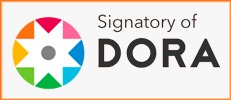Hydration: the review of 3 trials
DOI:
https://doi.org/10.22141/2307-1257.9.1.2020.196911Keywords:
hydration, excessive hydration, excessive forced hydration, chronic kidney disease and hydration, renal functional reserveAbstract
The concepts of forced hydration and excessive forced hydration are discussed in the article. The authors emphasize that excessive forced hydration has a proven track record in improving the quality of life for dehydrated people. In case of normovolemia, there is no evidence of quality improvement and prolongation of life when excessive forced hydration is used. The issue of forced hydration in chronic kidney disease (CKD) is considered separately. Three randomized clinical trials were analyzed in which patients with CKD stage 1–2, 3 and 4–5 received forced hydration. The results of studies indicate the possible efficacy of forced hydration in stage 1–2 CKD in patients with normal or increased renal functional reserve. In stage 3 CKD, forced hydration showed no benefits, and in stage 4–5 CKD, it resulted in greater renal function loss. Summarizing these data, the authors concluded that it is probably appropriate for healthy people to consume the amount of fluid that provides physiological diuresis of 1.2–1.8 L and normal urine osmolarity. Forced hydration is often excessive, excessive forced hydration may not promote a healthy lifestyle. Forced hydration becomes excessive forced hydration as kidney function decreases. Possibly, the benefits of forced hydration are lost in CKD with progression of renal function loss. The effect of forced hydration for 12 months may be positive in stage 1 CKD and stage 2 CKD with normal renal functional reserve. Forced hydration is probably inexpedient in chronic stages 3–5.Downloads
References
International Society of Nephrology (ISN). Hydration ISN-H4KH: Objectives. Available from: https://www.theisn.org/research/h4kh#isn-h4kh-objectives.
Hydration for Health. How much water should you drink a day? Available from: https://www.hydrationforhealth.com/en/.
Ivanova MD, Gozhenko AI, Creastanello T, Ivanov DD. Coaching to increase water intake in CKD: when is it beneficial? Annals of Nutrition and Metabolism. 2020;76(1). In print.
Downloads
Published
How to Cite
Issue
Section
License
Copyright (c) 2020 D. Ivanov, M. Ivanova

This work is licensed under a Creative Commons Attribution 4.0 International License.

 ISSN 2307-1257
ISSN 2307-1257 ISSN 2307-1265
ISSN 2307-1265



















